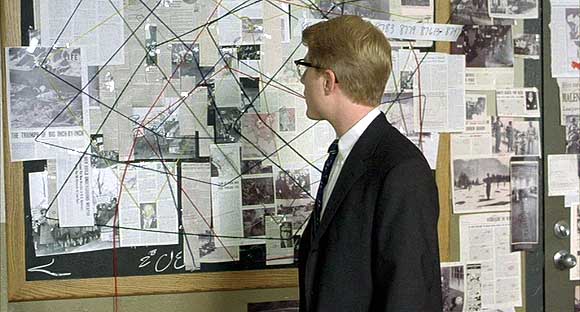The basic question in interpretation is do you believe the message is only in the words as understood by the writers, or are there messages inserted by a sovereign, inspiring God that the writers didn't even know about?
If you believe the latter then all manner of diagnoses, Greek word exposition, cross-referencing, pattern-searching and type evaluation may be appropriate. The problem with this kind of approach is knowing when to stop. Witness Lee definitely believed in this approach to the Bible and ended up with a theology that eclipsed some of the clear, plain commandments (e.g. living a life of service) with those which at best are hidden and perhaps imaginary (e.g. focusing on "God's economy").

Put in layman's terms, Lee got so "cute" with his Bible approach that he erred.
I believe in the Bible's plain word, but I also believe that God is completely capable of inserting inspired messages that the writers weren't even aware of. Evidence of this is the heptactic structure of the New Testament revealing patterns of the numbers of words and vowels which when taken together could not have been planned by the writers.
On the other hand, though we can consider the Bible fully inspired, it's clear that it doesn't bother to be accurate in the way we usually define accuracy. This is shown by the variations in the reportage of the same incidents and dialogue in the different gospels. For example, Matthew reports Jesus using the phrase "kingdom of heaven," while Luke and Mark report the same incidences of speaking as using the phrase "kingdom of God."
Lee took this variation as an excuse to create a new doctrine about the differences between the kingdom of heaven and the kingdom of God. Whether or not he was correct is not the point. The point is why major in these types of speculations when we have the plain word speaking clearly to us?
Lee tried to hear whispers so much that he missed the shouting. Is it reasonable to do that? The person who saw the patterns that swallowed the wall of his office in the image above thought so. And in a weird way the patterns made sense. But then again he was crazy.